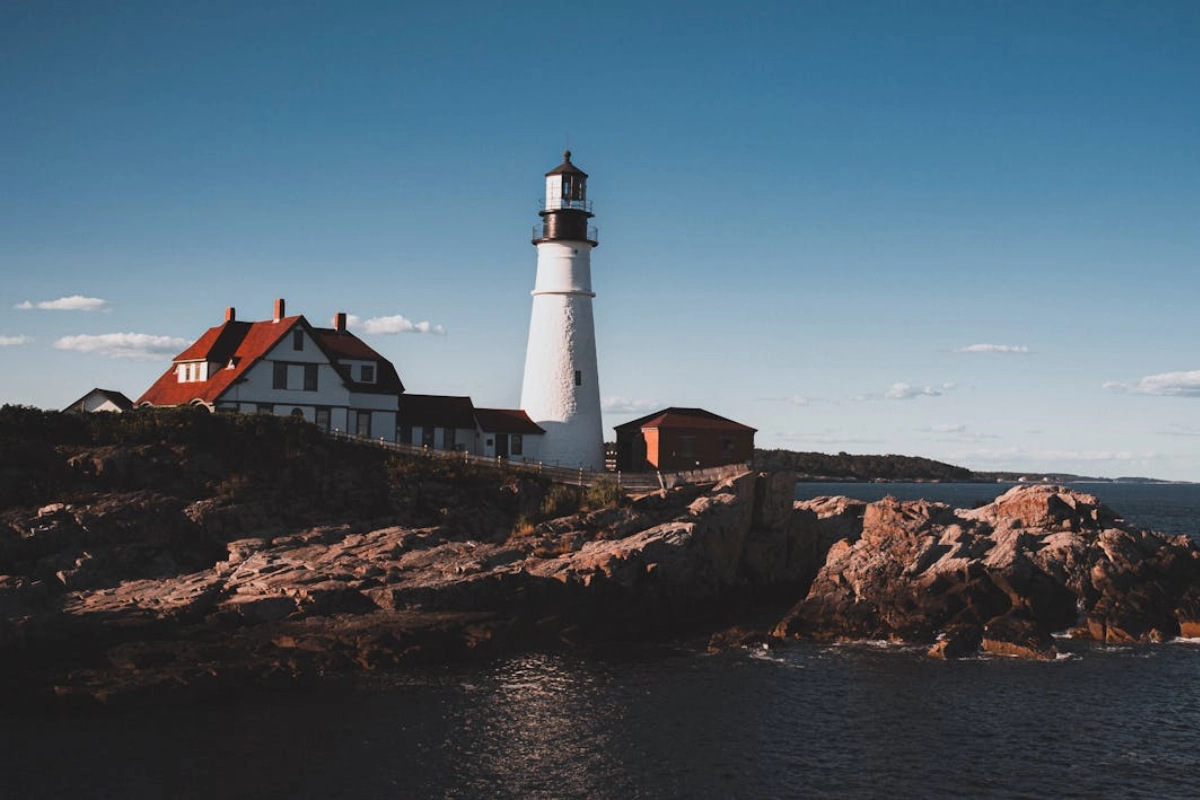
Is Weed Legal in Maine? Plus Maine Weed Laws & Maine Marijuana Legalization Efforts in 2024
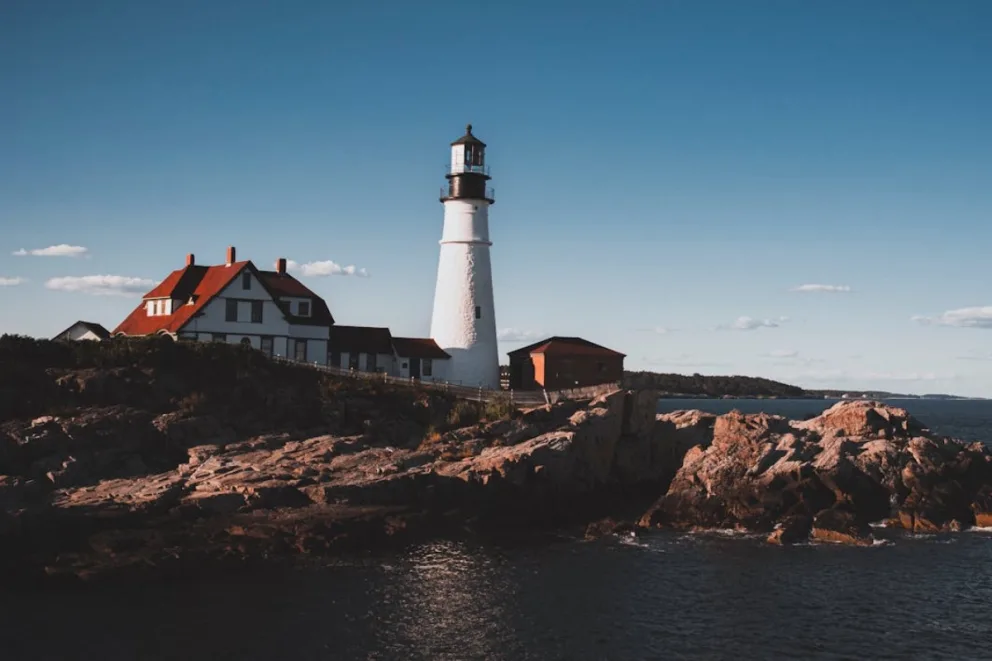
Is Weed Legal in Maine?
Yes cannabis is legal both for medical patients and recreationally. Maine was an early adopter of medical marijuana and legalized it for certain conditions in 1999. It went on to legalize recreational cannabis in 2016.
This means cannabis is available for purchase both with a medical recommendation or to legal adults 21 and up. Currently, purchasing medical and recreational cannabis requires visiting different dispensaries.
While both remain legal, there are still changes in the work that can potentially benefit Maine residents. Cannabis legislation brings a lot of regulations and compliance requirements that can impact the products available and how and where you purchase cannabis.. However, this may change for a few legal reasons.
Currently, cannabis remains federally illegal. However, states can decide the legal status of cannabis for themselves which has led to states rolling out cannabis legislation and experimenting with various legal statuses.
This may change as the United States Senate has reintroduced SB4226 a.k.a. Cannabis Administration and Opportunity Act which would decriminalize cannabis and reclassify it as a controlled substance. There are also plans to shift it from being regulated by the department that governs alcohol and tobacco rather than drug enforcement.
Maine is also entertaining new legislation. This post will explore the full spectrum of the legal status of marijuana in Maine, a brief history, and how the laws may be changing. Where does weed stand in the Pine Tree State and where is it headed?
Before we dive into the laws, let’s explore the various legal statuses of cannabis on the state level.
How Do Cannabis Laws Work?
While cannabis remains a controlled substance by United States Federal law, states can decide the legal status of cannabis for themselves. There are three ways that cannabis can be “legalized.”
Cannabis legalization has 3 different legal statuses:
- Decriminalized. When it’s decriminalized, cannabis is not legal, just not regularly enforced as a crime. The state government will downgrade the criminal charges for cannabis use or possession from felony charges to in some cases the same level as a parking ticket. If you’re even charged at best you may receive a small fine. It’s important to note that this doesn’t make cannabis legal but is often the first step in the legalization process. A major push for decriminalization is often that cannabis laws can often be enforced across racial lines with some groups disproportionately prosecuted.
This post covers the differences between decriminalization and legalization
- Legal for Medical Use. Patients can legally obtain medical marijuana if they fit the legal criteria to purchase it for example a prescription, card or recommendation. Medical marijuana legalization creates an industry. So it establishes the criteria, compliance and logistics of this new industry i.e. how can doctors prescribe? What medical conditions qualify? How can dispensaries dispense cannabis? States can even decide how you can use cannabis. In some states smoking weed or edibles are still illegal.
- Legal for Recreational Use. This essentially fully legalizes cannabis for adults of legal drinking age. Cannabis is regulated like alcohol or cigarettes. However, there are still legal limits for how much cannabis one can legally purchase, if you can sell, purchase or grow it and states can take time to fully implement recreational legalization. There are also rigorous testing and compliance requirements for dispensaries.
Now that you understand how cannabis laws work, let’s expand more on Maine’s relationship to cannabis legalization.
Apply for a Medical Marijuana Card Online Today
Join over 100,000 patients who have chosen Green Health Docs as their medical cannabis doctors. We have a 99% approval rate and offer a 100% money back guarantee!
When Did Maine Legalize Weed?
Now that you understand the three legal states of cannabis, let’s review when Maine legalized cannabis. Plus, at what time the legal status of cannabis was at each of these levels.
Maine was a fairly early adopter of medical marijuana. It was one of the first states that legalized cannabis for some medical conditions way back in 1999. In 2009, the full medical marijuana program was expanded. Possession of up to 2.5 ounces of cannabis was also decriminalized with that legislation.
In 2016, recreational cannabis was legalized however recreational cannabis was not immediately available. There are often delays as a lot of the logistics play out. States have a lot of red tape and compliance laws that dispensaries must follow through before they can open their doors.
Marijuana legislation can often take a year or more to become implemented as these dates are often selected by reverse engineering timelines like: How long will it take for the state to establish a governing body for their marijuana program, review and select dispensary applications and allow those dispensaries time to open?
When Did The First Recreational Dispensary Open In Maine?
As mentioned, there can be a certain period for rollout between when cannabis is legalized on the state level and when residents can legally purchase cannabis. Despite the legalization taking place in 2016, the first six dispensaries in Maine did not open until October 9, 2020.
Are There Recreational Dispensaries In Maine?
A four year delay can have many Maine residents wondering if there are even dispensaries. Currently, Maine has 139 open recreational dispensaries with 218 licensed to operate recreational marijuana dispensaries. As of early 2024, 59 out of the 66 licensed medical marijuana dispensaries are operational. If you’d like to find a dispensary near you check out this statewide list of dispensaries.
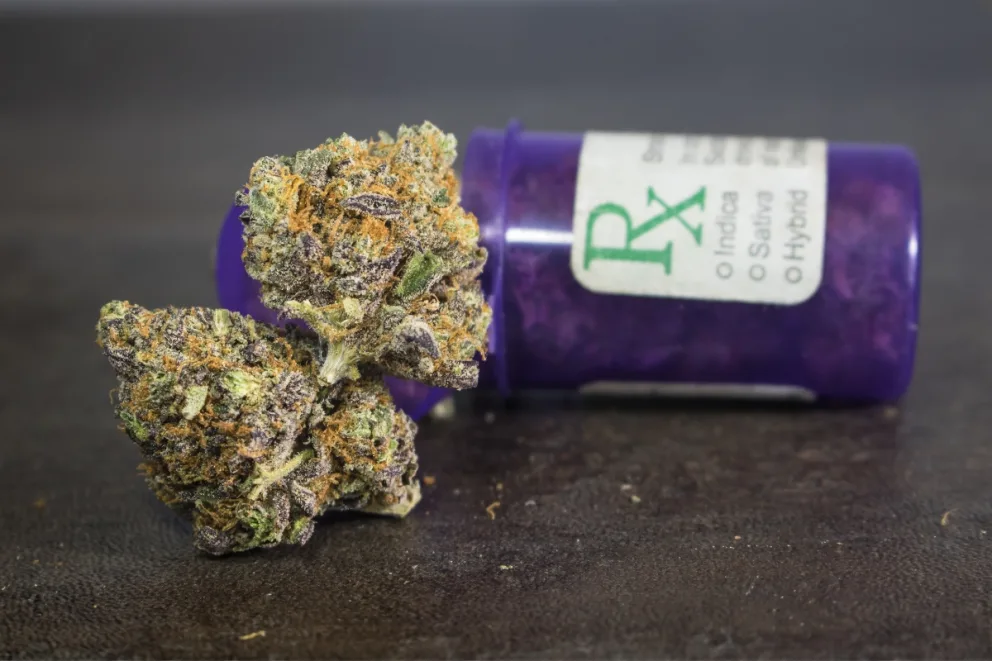
Maine Marijuana Laws
Let’s explore some of the history of marijuana law in Maine for a better understanding of the landscape.
There was a time when cannabis was not only legal, it was fairly prolific. While it wasn’t indigenous or grown in every state it was popular in some southern states. However, attitudes changed for a myriad of reasons. Over the course of the early to mid-20th century, states began to criminalize or limit cannabis. For example, in 1911, Massachusetts was the first state to ban the use of marijuana without a prescription. Maine followed suit and banned cannabis in 1913.
The 1970s marked a change in the view on cannabis after the findings of what’s commonly known as the Shafer Commission, f.k.a. National Commission on Marihuana and Drug Abuse. Appointed by Richard Nixon this commission recommended that cannabis should be decriminalized rather than a Schedule 1 substance.
The commission’s published findings essentially clarified that the public sentiment that viewed marijuana users as dangerous were incorrect and that cannabis users to be “more timid, drowsy and passive.” In 1976, Maine’s Legislature made it the third state to decriminalize possession of small amounts of cannabis after Oregon and Alaska.
On November 2, 1999, Maine legalized medical marijuana when 61.41% of voters voted yes on Question 2 a.k.a. Maine Medical Marijuana for Specific Illnesses. This legalized medical marijuana for glaucoma, epilepsy, and muscle spasms caused by multiple sclerosis. While this did technically legalize medical marijuana it did not do so to the degree that cannabis was legally available or readily available.
Let’s explore the path to legalization.
Maine Weed Legalization
While Maine has been an early adopter of progressive cannabis legislation, at best the 1999 law was a soft launch for medical marijuana. On November 3, 2009 Maine voters approved Question 5, which enacted the citizen-initiated bill, “An act to establish the Maine Medical Marijuana Act” (LD 975, IB 2).
The legal red tape that delays many states from instantly legalizing cannabis is the infrastructure needed to establish an entire new industry and a way to obtain, distribute, and prescribe cannabis. With the passage of LD975, Maine became the fifth state to have medical dispensaries. It also established Maine’s Office of Cannabis Policy to manage the medical marijuana program.
In May 2009, Maine also decriminalized marijuana. Governor John Baldacci signed (LD 250) which decriminalized the possession of 2 & 1⁄2 ounces (71 g) of cannabis making it a civil infraction. While no longer a felony, being caught with that much cannabis would mean a civil summons and fines ranging from $350 to $1,000.
In less progressive states, large cities will often begin decriminalization. That happened with legalization in Maine as Portland city voters passed their own legalization.
On November 5, 2013, Portland passed Question 1 which “legalized” the possession of 21⁄2 ounces (71 g) within the city’s limits. A year later, South Portland successfully voted to do the same. It’s a bit murky because while it was “legal” it essentially was downgrading the punishment restricting it to a $600 fee as opposed to allowing the widespread use and sale of cannabis.
That being said, this legislation did help pave the way for 2016 when Maine would officially legalize recreational cannabis.
Maine Recreational Marijuana
In 2016, Maine voters voted on Maine Question 1, known legally as An Act to Legalize Marijuana. It passed by a tight margin with 50.26% of the population voting yes. Question 1 would open up the city to recreational sales and establish a 10% tax on cannabis.
That being said, it was delayed for years and there were legal changes including ensuring that retail edibles remain illegal. It would not be until October 9, 2020 that those dispensaries would eventually open.
Cannabis has become a booming business with Maine setting a new record in the first 11 months of 2023, with nearly $200 million worth of legal cannabis products sold during the year.
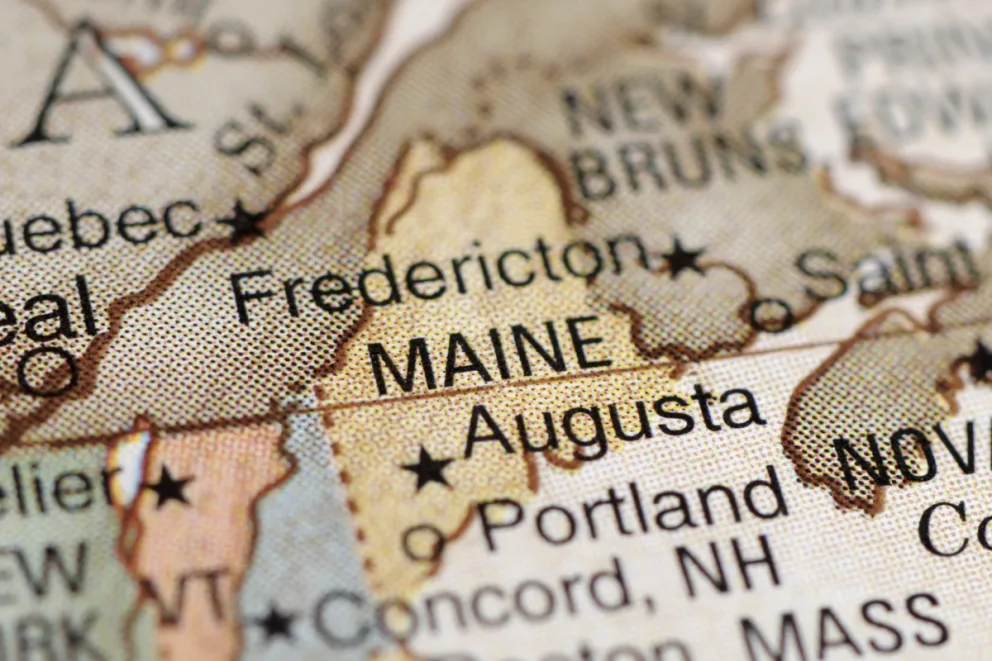
Maine Recreational Dispensary Laws
So if cannabis was legalized in 2016 why did it take until 2020 for cannabis sales to open? Part of what happened was some petitions to the law. But the average cannabis user may not understand the full complexity of cannabis law even when a state legalizes cannabis.
There are restrictions and specific policies that must be followed by the growers, distributors and packaging of cannabis. There are laws about what packaging can say, how much THC can be in products, and who can open dispensaries.
For example, law enforcement and corrections officers cannot open up dispensaries. You cannot list any health benefits on packaging. You cannot sell using a vending machine, you can sell soda or t-shirts at a dispensary but not tobacco or alcohol.
If you’re curious, this page offers a robust explanation of recreational dispensary laws with a helpful explainer of what many of those laws mean. Here’s a link to the application to apply for your own dispensary license.
Is Maine Recreational Or Medical?
Maine has legalized both medical and recreational cannabis. While that does mean that cannabis is readily available for purchase there are a few benefits to being a medical patient. For example, as we mentioned, edibles are not legal.
Can You Buy Edibles In Maine?
Currently, recreational patients cannot purchase edibles. Only card carrying medical marijuana patients can legally purchase edibles.
Do You Need A Medical Card For Weed In Maine?
You do not need a medical card to purchase cannabis from recreational dispensaries. However, to be a medical patient you do need a medical card to purchase cannabis from medical dispensaries which does boast some benefits including lower prices, less taxes, and the ability to purchase legal edibles.

Can Medical Patients From Other States Purchase Weed in Maine?
Maine allows for medical marijuana reciprocity. That means if you’re a medical marijuana patient visiting Maine you can purchase some in Maine.
People with medical marijuana cards from the following states can legally purchase medical marijuana in Maine:
Alaska, Arizona, Arkansas, California, Connecticut, DC, Florida, Hawaii, Illinois, Iowa, Maryland, Massachusetts, Michigan, Minnesota, Missouri, Montana, Nevada, New Hampshire, New Jersey, New Mexico, New York, North Dakota, Oklahoma, Oregon, Rhode Island, Utah, Virginia, Vermont, Washington
What Medical Conditions are Required to Receive a Medical Card in Maine?
Legislation (LD 1539) approved in 2018 amends the state law so that a physician can decide at their discretion if cannabis is the proper course of treatment for any patient.
Before that time the list of approved medical conditions included:
- Alzheimer’s disease
- Amyotrophic Lateral Sclerosis
- Cachexia or wasting syndrome
- Cancer
- Chronic pain
- Crohn’s disease
- Epilepsy
- Glaucoma
- Hepatitis C
- HIV or AIDS
- Huntington’s disease
- Inflammatory bowel disease
- Multiple Sclerosis
- Nausea
- Nail-patella syndrome
- Parkinson’s disease
- Post-traumatic stress disorder (PTSD)
Is Delta-8 Legal In Maine?
Yes, Delta-8 THC is legal in Maine. Both hemp-derived delta-8 and cannabis derived delta-8 products are legal as per Maine state law.
Is CBD Oil Legal In Maine?
As per the 2018 Farm Bill, CBD products became legal nationally. However, with cannabis being legal CBD oil remains legal in Maine. The only caveat is that it is only legal for adults 21 and over.
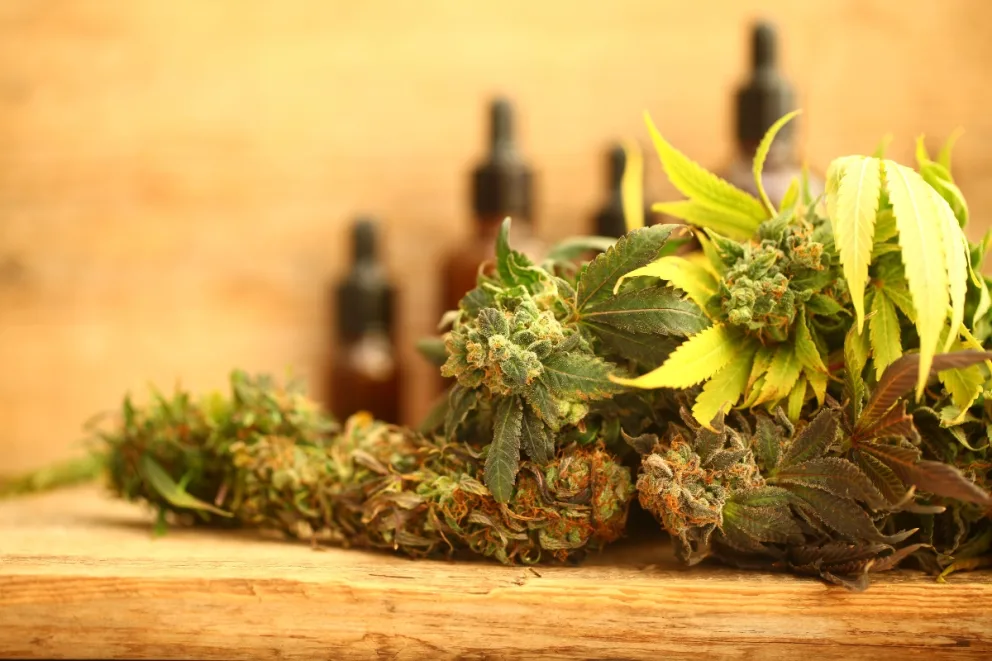
How Many Cannabis Plants Can You Grow In Maine?
Maine residents can grow as many as six mature, 12 immature plants, and an unlimited number of seedlings per resident 21 years of age or older.
These restrictions do not apply to the cultivation of cannabis for medical use by a qualifying patient, a caregiver, a registered caregiver or a registered dispensary as authorized by the Maine Medical Use of Marijuana Act which gives them more freedom.
How Does Maine Spend Its Cannabis Tax Money?
According to Maine’s local news, 12% of collected taxes go to the Adult Use Marijuana Public Health and Safety Fund. This fund covers the costs of implementing, administering, and enforcing Maine’s adult-use marijuana program overseen by the Office of Marijuana Policy. This includes regulatory costs, licensing, enforcement, public awareness campaigns, etc.
The remainder goes to the general fund. However, some may be earmarked for specific purposes for example:
Maine directs a portion of adult-use cannabis tax revenue to the state’s General Purpose Aid for Local Schools program, which distributes funding to public schools across the state.
Some cannabis tax money is devoted to enhancing law enforcement efforts related to anti-trafficking, data collection, and investigative training related to marijuana laws and rules. Some get directed to public health and safety programs, including but not limited to substance abuse education, prevention, and treatment.
Any remaining unallocated cannabis tax revenue after covering program implementation costs goes into the General Fund to support the overall state budget and government operations.
Does Health Insurance In Maine Cover Cannabis?
Yes, legally medical insurers are required to cover medical marijuana for qualifying patients.
Under Title 22, section 2423-B, “A carrier offering a health plan in this State [Maine] shall provide coverage for marijuana for medical use for an enrollee who has received certification for the medical use of marijuana from a medical provider.”

Final Thoughts
Throughout history, Maine has been fairly progressive with regards to its attitudes on cannabis. It’s not surprising that it has both medical and recreational cannabis available to residents. It’s been a big boon to the economy allowing for millions of dollars in new revenue.
That being said, there are some benefits to having your medical marijuana card like greater access to products like edibles, lower sales taxes, not to mention the ability to grow more cannabis for yourself.
If you’d like to get your medical marijuana card in Maine, let Green Health Docs help make the process straightforward and simple.
 This article has been reviewed by Dr. Anand Dugar, an anesthesiologist, pain medicine physician and the founder of Green Health Docs. Graduating from medical school in 2004 and residency in 2008, Dr. Dugar has been a licensed physician for almost 20 years and has been leading the push for medical cannabis nationwide.
This article has been reviewed by Dr. Anand Dugar, an anesthesiologist, pain medicine physician and the founder of Green Health Docs. Graduating from medical school in 2004 and residency in 2008, Dr. Dugar has been a licensed physician for almost 20 years and has been leading the push for medical cannabis nationwide.
